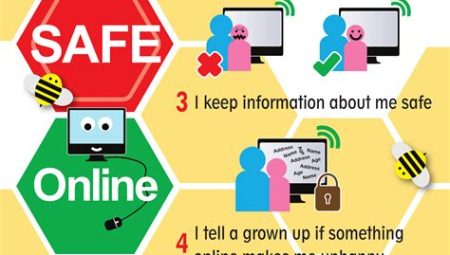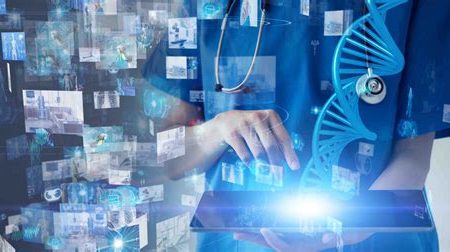In today’s fast-paced and technology-driven world, innovative health technologies have transformed the way we approach healthcare and wellness. From smart wearables to mobile health apps, artificial intelligence to telemedicine, the impact of these advancements is reshaping the healthcare landscape. In this blog post, we will delve into the various aspects of innovative health technologies and how they are revolutionizing the way we manage our health journey.
We will explore the ways in which these technologies are empowering patients to take control of their health, enhancing diagnosis and treatment methods, and ultimately revolutionizing the healthcare industry as a whole. From the integration of big data analytics for personalized health solutions to the advancements in genomic technologies for precision medicine, the future of health tech is an exciting and transformative one. Join us as we take a closer look at the potential impact of these technologies on our daily lives and the future of healthcare.
Table of Contents
Understanding Innovative Health Technologies
Health technologies are evolving at a rapid pace, bringing about revolutionary changes in the way healthcare is delivered and received. From wearable devices to mobile apps, artificial intelligence to telemedicine, the landscape of healthcare is being transformed by these innovative technologies.
Smart wearables are one of the most popular health tech innovations, allowing individuals to track their vital signs, physical activity, and even receive notifications about potential health concerns. These devices empower users to take control of their own health and well-being.
Artificial intelligence is another game changer in the healthcare industry, enabling advanced data analysis for faster and more accurate diagnosis, as well as personalized treatment plans. The potential for AI to streamline processes and improve patient outcomes is immense.
Telemedicine has also emerged as a critical tool for extending healthcare services to individuals in remote or underserved areas. Through virtual consultations and remote monitoring, patients can access quality care without the need for in-person visits.
Exploring the Impact of Health Tech on Daily Life
The impact of health tech on daily life is undeniable. From the convenience of telemedicine to the personalized health solutions derived from big data analytics, innovative technologies are reshaping the way we manage our healthcare.
One of the most significant impacts of health tech on daily life is the empowerment it brings to patients. With mobile health apps and smart wearables, individuals are now able to take charge of their own health and wellness like never before. The integration of these tools into daily life has led to a greater emphasis on prevention and self-care.
Furthermore, the utilization of artificial intelligence in healthcare is transforming the way diagnosis and treatment are approached. With AI-powered algorithms analyzing massive amounts of patient data, healthcare providers are able to deliver more accurate and personalized care to individuals, improving their quality of life.
In conclusion, the impact of health tech on daily life is immense. As innovative technologies continue to advance and interconnect, the future of healthcare looks promising, with a greater focus on empowerment, personalization, and improving overall well-being.
Revolutionizing Healthcare with Smart Wearables
Smart wearables have been transforming the way we approach healthcare by providing individuals with valuable health data right at their fingertips. From fitness trackers to smartwatches, these devices are revolutionizing the healthcare industry by empowering patients to take control of their own health. By monitoring vital signs such as heart rate, sleep patterns, and activity levels, smart wearables are allowing individuals to make informed decisions about their lifestyle and well-being.
Furthermore, these devices are not only beneficial for individuals but also for healthcare professionals. By providing real-time data, smart wearables enable healthcare providers to gain a deeper understanding of their patients’ health and track their progress more accurately. This allows for more personalized and efficient care, ultimately leading to improved health outcomes.
Smart wearables are also playing a significant role in preventive medicine. By alerting users to potential health issues and encouraging healthy behaviors, these devices are helping to minimize the risk of developing chronic conditions. This proactive approach to healthcare is essential in reducing healthcare costs and improving overall population health.
In conclusion, the integration of smart wearables in healthcare is revolutionizing the way we approach health and wellness. These devices are allowing individuals to take a more proactive role in their own health and are providing healthcare professionals with valuable insights to deliver more personalized care. As technology continues to advance, the potential for smart wearables to revolutionize healthcare is endless.
Empowering Patients with Mobile Health Apps
In today’s fast-paced world, the use of mobile health apps is revolutionizing the way patients engage with their own health. These apps are designed to provide users with valuable information about their health status, track their progress, and even facilitate communication with healthcare providers.
By putting the power of health management directly into the hands of patients, these mobile apps are empowering individuals to take control of their own well-being. Patients can easily access information about their condition, set reminders for medication, and monitor their diet and exercise routines through these user-friendly applications.
Moreover, with the integration of features such as telemedicine and virtual consultations, mobile health apps are enabling patients to connect with healthcare professionals from the comfort of their own homes. This not only saves time and resources but also ensures continuous monitoring and follow-up care.
The convenience and accessibility offered by mobile health apps are changing the dynamics of patient care, allowing individuals to actively participate in managing their health. With the potential to improve health outcomes and enhance patient-provider collaboration, these apps are indeed empowering patients in their healthcare journey.
How Artificial Intelligence is Transforming Healthcare
Artificial Intelligence (AI) has been making a significant impact on the healthcare industry, revolutionizing the way medical professionals diagnose, treat, and manage patient care. The integration of AI technologies in healthcare has led to improved accuracy and efficiency in disease diagnosis, personalized treatment recommendations, and predictive analytics for potential health risks.
One of the key areas where AI is transforming healthcare is in medical imaging analysis. With machine learning algorithms, AI can analyze medical images such as MRI scans, X-rays, and CT scans to detect abnormalities and provide more accurate diagnoses. This has not only reduced the time for radiologists to interpret results but also improved the accuracy of identifying early signs of diseases.
Furthermore, AI-powered chatbots and virtual assistants are being used to enhance patient engagement and support. These chatbots can provide personalized health recommendations, reminders for medication adherence, and even offer emotional support to patients. This technology has improved patient outcomes and has the potential to alleviate the burden on healthcare providers.
AI is also being utilized for predictive analytics and population health management. By analyzing large volumes of patient data, AI can help healthcare providers identify high-risk patients, predict potential health issues, and streamline treatment plans. This proactive approach to healthcare has the potential to lower costs and improve patient outcomes in the long run.
Enhancing Diagnosis and Treatment with Telemedicine
Telemedicine has revolutionized the way healthcare is delivered, allowing patients to connect with healthcare providers remotely through the use of technology. By leveraging telemedicine, healthcare professionals are able to enhance the diagnosis and treatment of patients, particularly those in rural or underserved areas.
With the use of video conferencing, remote monitoring, and digital communication tools, telemedicine enables patients to access medical care without the need for in-person visits to a healthcare facility. This is especially beneficial for individuals with mobility limitations or those who live in remote locations with limited access to healthcare services.
Telemedicine also plays a crucial role in improving the efficiency of diagnosis and treatment processes. By facilitating virtual consultations and telehealth appointments, healthcare providers can expedite the delivery of care and reduce waiting times for patients. This streamlined approach to healthcare delivery enhances the overall patient experience and ensures timely access to medical expertise.
Furthermore, telemedicine opens up new possibilities for collaboration and knowledge sharing among healthcare professionals. Through telemedicine platforms, physicians can easily consult with specialists and access medical resources, leading to more comprehensive and accurate diagnoses. This collaborative approach ultimately contributes to improved treatment outcomes and patient satisfaction.
The Future of Health Tech: Virtual Reality in Healthcare
Virtual reality (VR) has been making waves in the healthcare industry, offering innovative solutions and transforming the way patients and healthcare professionals interact. The use of virtual reality technology in healthcare has opened up a world of possibilities, from pain management and rehabilitation to surgical training and therapy.
One of the most noteworthy applications of VR in healthcare is in the treatment of mental health disorders. The immersive nature of VR allows patients to be transported to different environments, helping them confront and manage their anxieties and phobias in a controlled and safe setting. This has significantly improved the efficacy of exposure therapy, offering hope for individuals struggling with conditions such as PTSD, anxiety, and phobias.
Moreover, virtual reality has also been instrumental in medical education and training. Healthcare professionals can now practice surgical procedures and complex operations in a simulated environment, honing their skills and improving patient outcomes. This has the potential to revolutionize medical training, making it more accessible and hands-on for aspiring doctors and surgeons.
As technology continues to advance, the future of health tech lies in the integration of virtual reality into mainstream healthcare practices. From telemedicine consultations to patient rehabilitation, VR has the potential to enhance the quality of care and provide more personalized treatment options for individuals across the globe.
Integrating Big Data Analytics for Personalized Health Solutions
In today’s digital age, the healthcare industry is experiencing a significant transformation with the integration of big data analytics for personalized health solutions. With the vast amount of health-related data being generated every day, from electronic health records to wearable devices, healthcare providers are leveraging big data analytics to gain valuable insights into patient care and treatment outcomes.
This data-driven approach allows for the development of personalized health solutions that are tailored to the individual needs of patients. By analyzing large volumes of diverse data sets, healthcare professionals are better equipped to identify patterns, trends, and potential risk factors, ultimately leading to more effective diagnosis and treatment strategies.
Furthermore, integrating big data analytics into healthcare empowers patients to take a more active role in managing their own health. With access to personalized insights and recommendations, individuals can make informed decisions about their lifestyle choices and treatment options, leading to improved health outcomes.
Ultimately, the integration of big data analytics for personalized health solutions has the potential to revolutionize the healthcare industry, paving the way for more efficient, effective, and patient-centric care.
Advancements in Genomic Technologies for Precision Medicine
Advancements in genomic technologies have revolutionized the field of precision medicine, offering new ways to tailor medical treatment to an individual’s unique genetic makeup. By analyzing a patient’s genetic information, healthcare providers can make more informed decisions about which treatments are likely to be most effective, minimizing the need for trial and error in finding the right medication or therapy. This personalized approach has the potential to improve patient outcomes and reduce the overall cost of healthcare.
One of the key advancements in genomic technologies is the development of high-throughput sequencing, which allows for the rapid analysis of an individual’s entire genome. This technology has made it possible to identify genetic variations that may contribute to an individual’s risk of developing certain diseases, allowing for earlier detection and intervention. Additionally, advances in bioinformatics have enabled researchers to more effectively interpret the vast amount of data generated by genomic sequencing, leading to a better understanding of the complex relationship between genetics and disease.
Another area of advancement in genomic technologies is the increasing availability of direct-to-consumer genetic testing. Companies offering these tests provide individuals with access to their own genetic information, allowing them to gain insight into their ancestry, traits, and potential health risks. While this has the potential to empower individuals to take a proactive approach to their health, it also raises ethical and privacy concerns that need to be carefully addressed.
Overall, the advancements in genomic technologies hold great promise for the future of precision medicine, offering new opportunities to understand and address the underlying genetic factors contributing to disease. As research in this field continues to advance, it is likely that genomic technologies will play an increasingly important role in guiding clinical decision-making and improving patient care.
Building a Connected Health Ecosystem with Internet-of-Things
The Internet-of-Things (IoT) has revolutionized the healthcare sector by connecting various devices and systems to provide personalized and efficient care to patients. This interconnected network of medical devices, sensors, and software applications has paved the way for the development of a connected health ecosystem that has the potential to transform the way healthcare is delivered and managed.
By leveraging IoT technologies, healthcare providers can remotely monitor patients, improve diagnosis and treatment, and streamline operations. For example, connected medical devices such as blood pressure monitors, glucose meters, and wearable fitness trackers can collect real-time data and transmit it to healthcare professionals, allowing for continuous monitoring and timely interventions.
Furthermore, the integration of IoT in healthcare enables the seamless exchange of information between different stakeholders, including patients, caregivers, healthcare providers, and insurers. This interconnectedness not only enhances care coordination and communication but also empowers patients to actively participate in their own healthcare management.
Building a connected health ecosystem with IoT is not without its challenges, including data security and privacy concerns, interoperability issues, and regulatory compliance. However, the potential benefits of a connected health ecosystem far outweigh the challenges, and as technology continues to advance, we can expect to see even more innovative solutions that leverage IoT to improve healthcare delivery, outcomes, and experiences.





